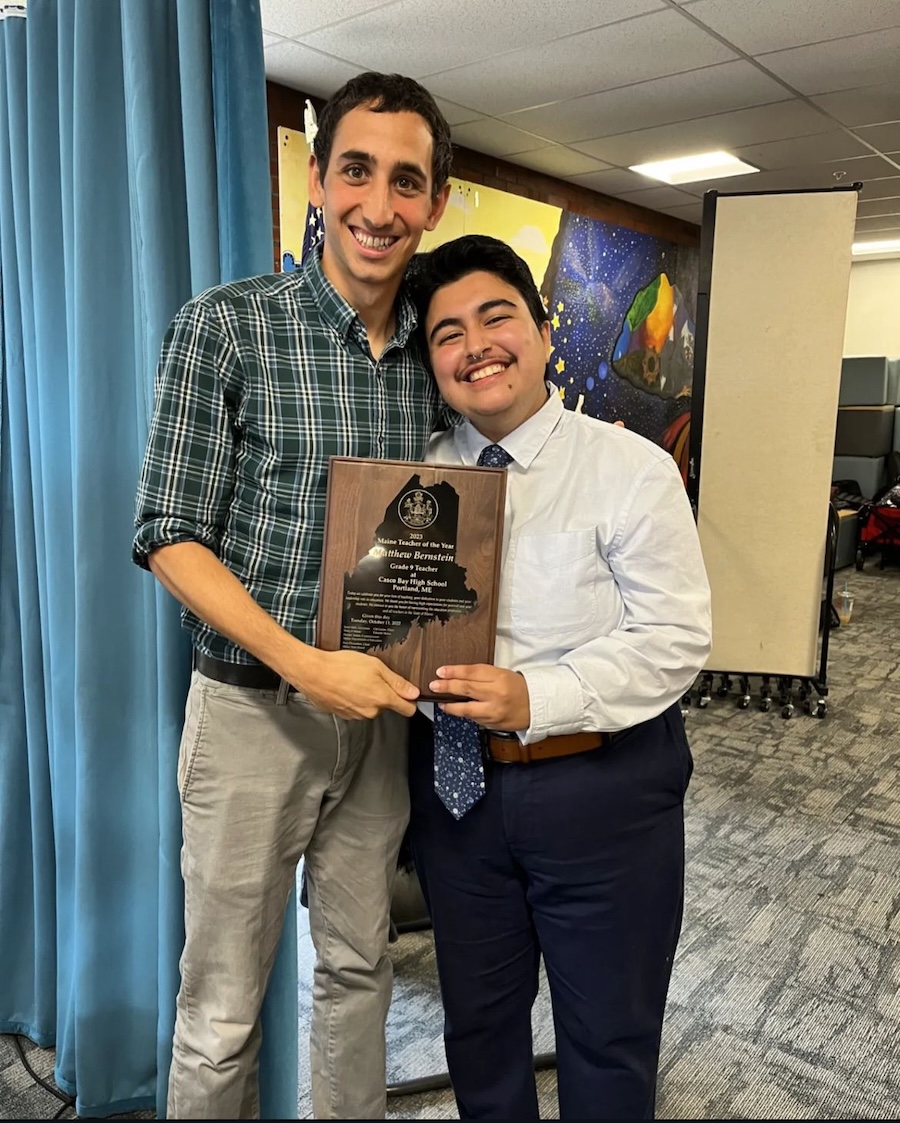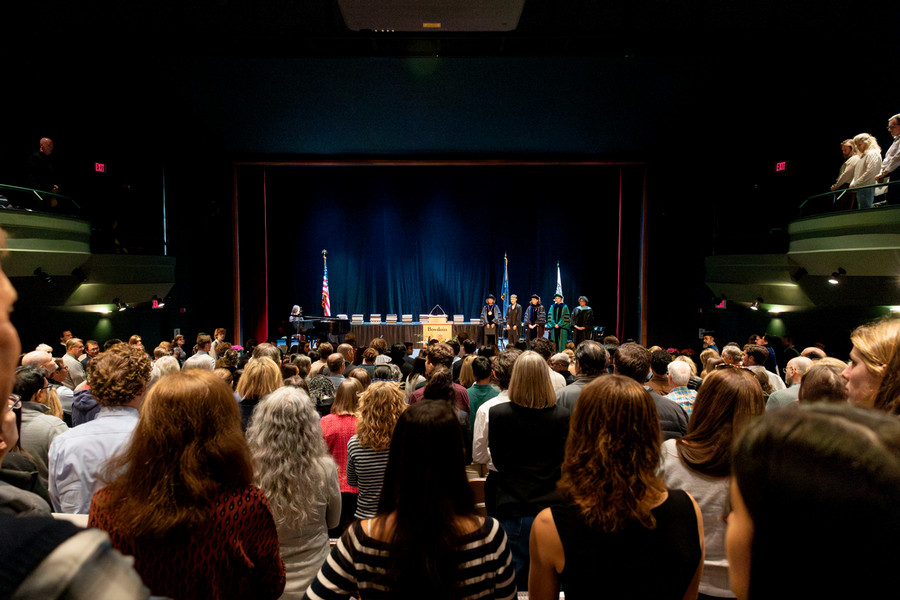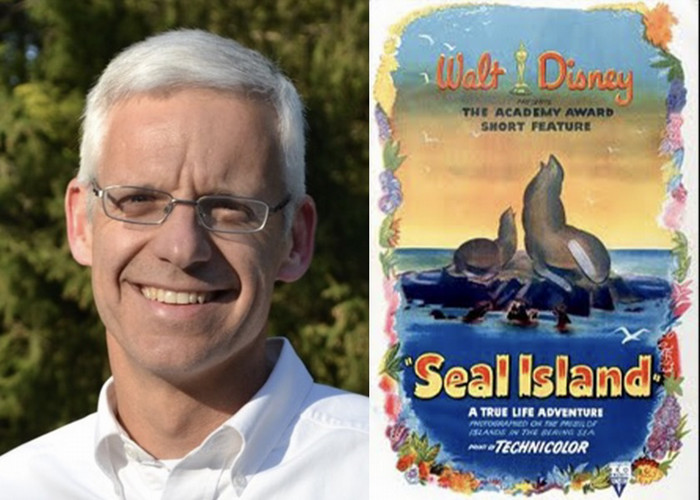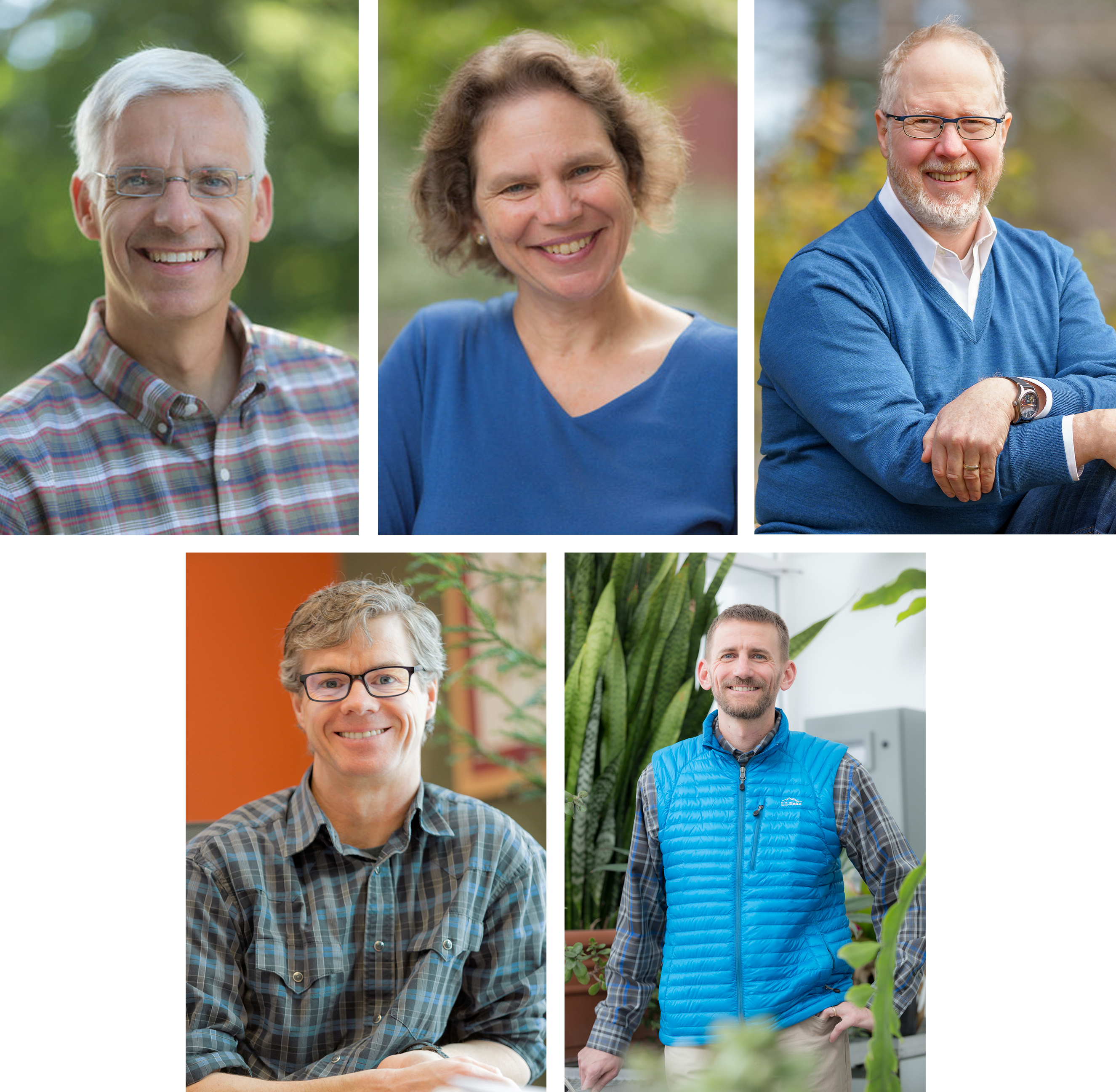No one way to teach a student: Bowdoin students observe pedagogy at Harvest Collegiate
By Anna Martens '20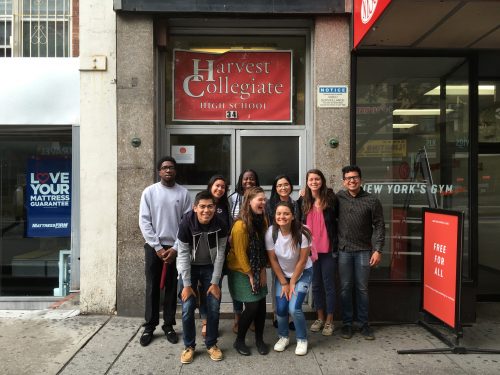
June 2017, New York, NY – Not long after finishing their own last week of school before summer, ten Bowdoin students voyaged to New York City to witness a different sort of last week of school. The group, joined by Bowdoin Education Professor Doris Santoro and Program Placement Outreach Coordinator Sarah Chingos, spent a week on Manhattan’s 14th Street observing the inner workings of Harvest Collegiate High School.
Harvest is a relatively new, progressive public high school. Andy del Calvo (Bowdoin class of 2012), a history and art history teacher at Harvest, pursued the partnership as co-developer of the program. Bowdoin students had five days of full access to the teachers, administrators, and students; they each shadowed a teacher, helped students, talked with the principal, and participated in a professional development day with teachers and administrators.
Harvest Collegiate promotes diverse teaching methods for a diverse student body. One of del Calvo’s goals in instigating the partnership was that, “I hoped [Bowdoin] students would see what real diversity looks like in a classroom and why it is such a powerful motor developing thoughtful, empathetic learners and think deeply about the world.” It appears this goal was met, as Brooks voiced one of the group’s biggest take-aways by saying, “There is no one way to teach a student.”
Bowdoin students were impressed by the levels of transparency and trust that Harvest granted, allowing them to sit in on meetings and truly see the behind-the-scenes aspect of being an educator. Ellen Gyasi, a sophomore, noted that the experience really helped her “understand the ins and outs of becoming a teacher.”
To Leah Matari, also a sophomore interested in education, “the beginning seemed like mayhem. But then I noticed, ‘Oh, there is structure.'” For Joshua Brooks ’20, who went to a public elementary school in New York City, this feeling was “nostalgic.” This environment was quite different to the ones Bowdoin students are placed in while studying in Maine. Brooks noted the differences in “the way students showed they care.” Julia O’Rourke, a Bowdoin junior who went to a high school quite different from Harvest, points out that “teaching means different things in different schools.” At Harvest, teaching seems to mean empathetic and enthusiastic engagement.
Bowdoin participants described the teachers at Harvest as caring deeply about their students and their pedagogies. O’Rourke was “surprised at how much teachers look into education research.” In shadowing one teacher most of the week, she also picked up “a lot of tools to develop curriculum in a logical way.” At the same time, another conversation centered around “how under-appreciated teaching is,” as Gyasi puts it. She explains that teaching takes both an “emotional toll and a physical toll,” something she has also witnessed in her father’s teaching career. Fortunately, Harvest’s “collaborative” structure supports the theory that “teachers [must] care for themselves first… in body and mind,” says Matari. Through the initially noted mayhem, she marveled at “the impact teachers can have on students’ lives.”
Bowdoin participants stayed nearby in dorms at the New School, and had group debrief sessions most nights. After each full day immersed in the school, they had a dinner or meeting to discuss and decompress; for several of the Bowdoin students, this was one of the most valuable aspects of the week. Sophomore Octavio Orozco Ibarra said it welcomed “reflection and different perspectives,” especially since each person was at a different stage in their education studies, and since not everyone always agreed. O’Rourke said, “I had never felt I was so constantly in discussion about education. [Debriefs are] where I made my conclusions.” Santoro assigned a few readings before the trip, which figured into the conversations along with the new experiences and questions of every day.
One evening, instead of a debrief dinner, Bowdoin students were joined by Bowdoin alumni. These alumni are living in NYC and are engaged with education in some way. This meal was a unique opportunity for students and former students with similar interests to connect and link education at Bowdoin with the education world outside of college. The alumni dinner, along with the professional development day at Harvest, offered participants a look into the career perspective, a nice complement to the hours with students in school.
The Harvest Immersion Program was funded by the generous support from the Snow Family Fund. There are plans to embark on another week-long immersive experience next spring, because the 2017 trip was so positively reported. Orozco Ibarra commented, “Every time I go into a classroom I notice something different… [It was valuable to] see how teachers perform in different settings, to see what teaching actually means.”
In del Calvo’s words, teaching actually means that “educators can promote a more just equitable society through love, care and intellectual rigor.” Brooks recommended the trip to anyone “trying to find their place” in the education world. Matari, having entered Harvest thinking her place was not a teacher, left thinking “maybe I could do this.”
